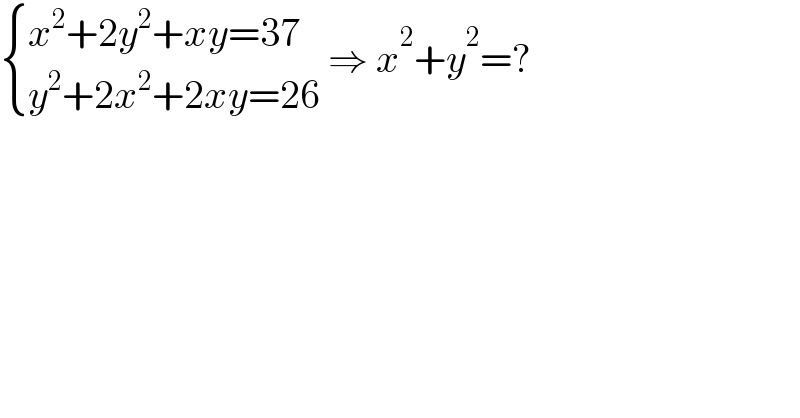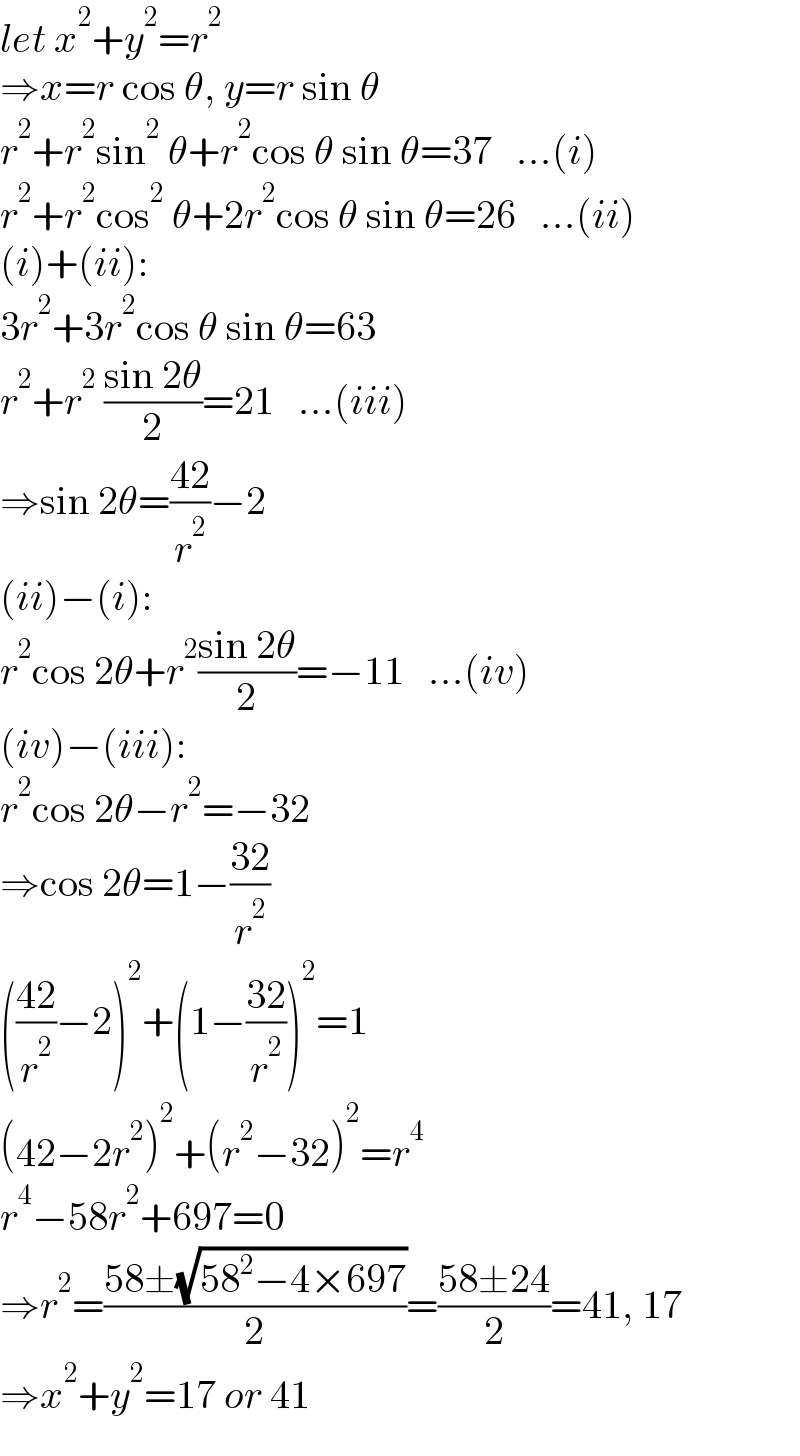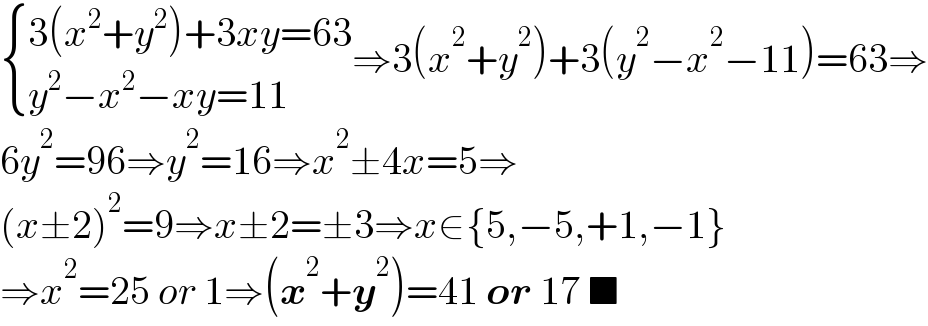
Question and Answers Forum
Question Number 146936 by mathdanisur last updated on 16/Jul/21

Answered by TheHoneyCat last updated on 16/Jul/21

Commented by mathdanisur last updated on 16/Jul/21

Answered by mr W last updated on 16/Jul/21

Commented by behi834171 last updated on 16/Jul/21

Commented by mathdanisur last updated on 16/Jul/21

Commented by Tawa11 last updated on 23/Jul/21

Answered by behi834171 last updated on 17/Jul/21

Commented by mathdanisur last updated on 16/Jul/21

